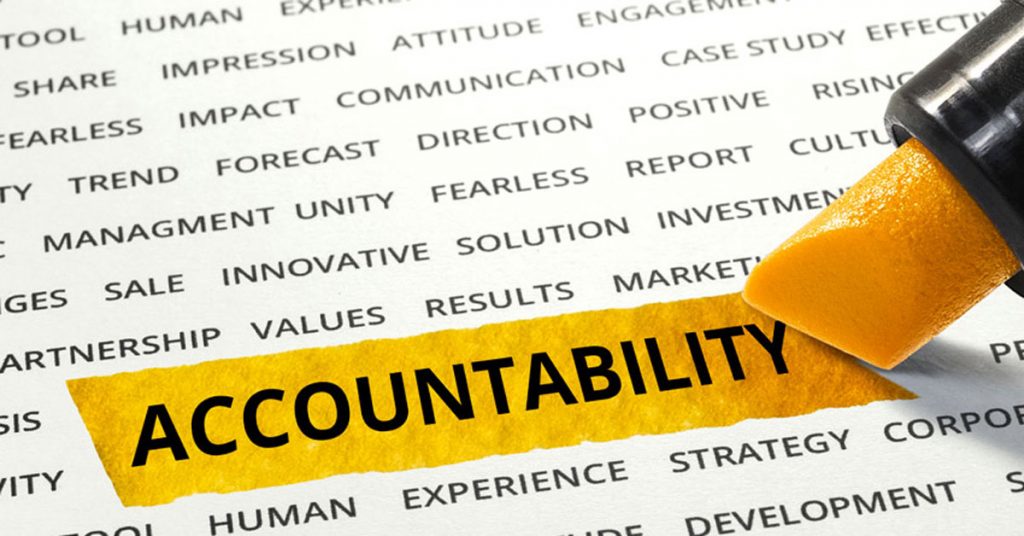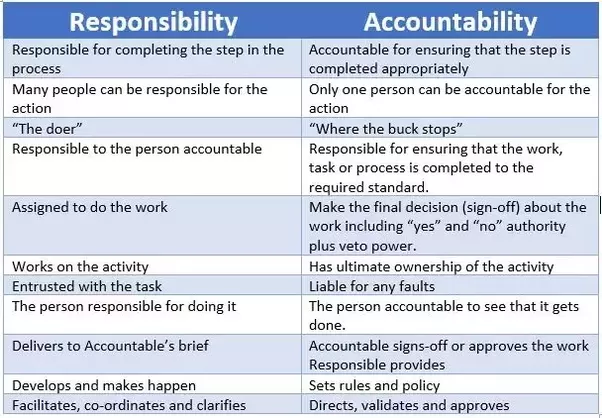
Accountability
Being an entrepreneur is a mixed bag. It can be very liberating as you run your own show, you decide what to do and when. However, you are mostly alone and making decisions can be tough. In the long run, you reap the benefits of your success but also feel the pain when failure strikes. This is where accountability comes into play. The lack of accountability can be a real problem and may lead to loss of control, to becoming pessimistic and create a situation where you are not able to get up and fight again.
By: Gerty Green
As an entrepreneur, you take responsibility for your choices and act on the things that are crucial to your success.
It is evident that to be accountable requires that you take responsibility – but you are not necessarily accountable when you are responsible for something!
Accountability according to Merriam-Webster’s dictionary is an obligation or willingness to accept responsibility or to account for one’s action.
Once you have decided to add this attribute to your toolbox, you will have to learn and practice the skill until it becomes a habit.

Why don’t we practice accountability naturally? It could be that from an early age having had to comply with the demands of others or face punishment, failure or being fired, as our parents demand obedience our teachers demand compliance and our employers demand acquiescence – so we are not allowed to be accountable and lose the willingness to call ourselves out on the decisions and choices we make. In addition, we may avoid accountability when we are not confident and feel that we are not going to succeed.
In the workplace, it is common to avoid accountability because
- it is unclear what you are accountable for, and you may not be given any authority to encourage you to step out and learn to be accountable
- claiming accountability for a mistake in an environment that does not allow for mistakes is risky
- if an employee is disengaged, or does not care about their work, they are unlikely to realize the purpose and importance of their roles.
Accountability builds trust within yourself and with your team and can earn you respect. It makes you responsible for your goals. You take ownership of your actions and no longer play the blame game. Being accountable allows you to take criticism positively, accept your mistakes, and perform better. To hold yourself accountable in every aspect of your life helps you to measure your success, it shows you how far you have come since starting. You feel more confident in your abilities.
Accountability helps you validating your thoughts and to find the best approach to execute ideas. It allows you to think outside the box, take challenging steps, remove obstacles, and judge your limits. Being accountable empowers you to be in control, to be optimistic, and get up after a failure. Lastly, accountability enables you to build stronger, lasting relationships.

So how do you learn to be accountable to yourself and others? If you are clear on your responsibilities, you can be accountable for them. Do not let pride come in the way, ask for help and if you made a mistake, admit to it. Say sorry if things have gone wrong and demonstrate what you will do to make it right. Prioritize your tasks effectively, be realistic; do not over-commit and procrastinate. Reflect and ask yourself, “What could I have done differently?”
Accountability and responsibility are closely related but not the same.
Even though we know what the right thing is to do and what the consequences are for not doing it, we justify our inability to be accountable. It is easier to blame others.
Without accountability, it is difficult for people to assume ownership of their own actions because they believe that they will not face any consequences.
It is clear that being accountable is a habit that should become a lifestyle.

